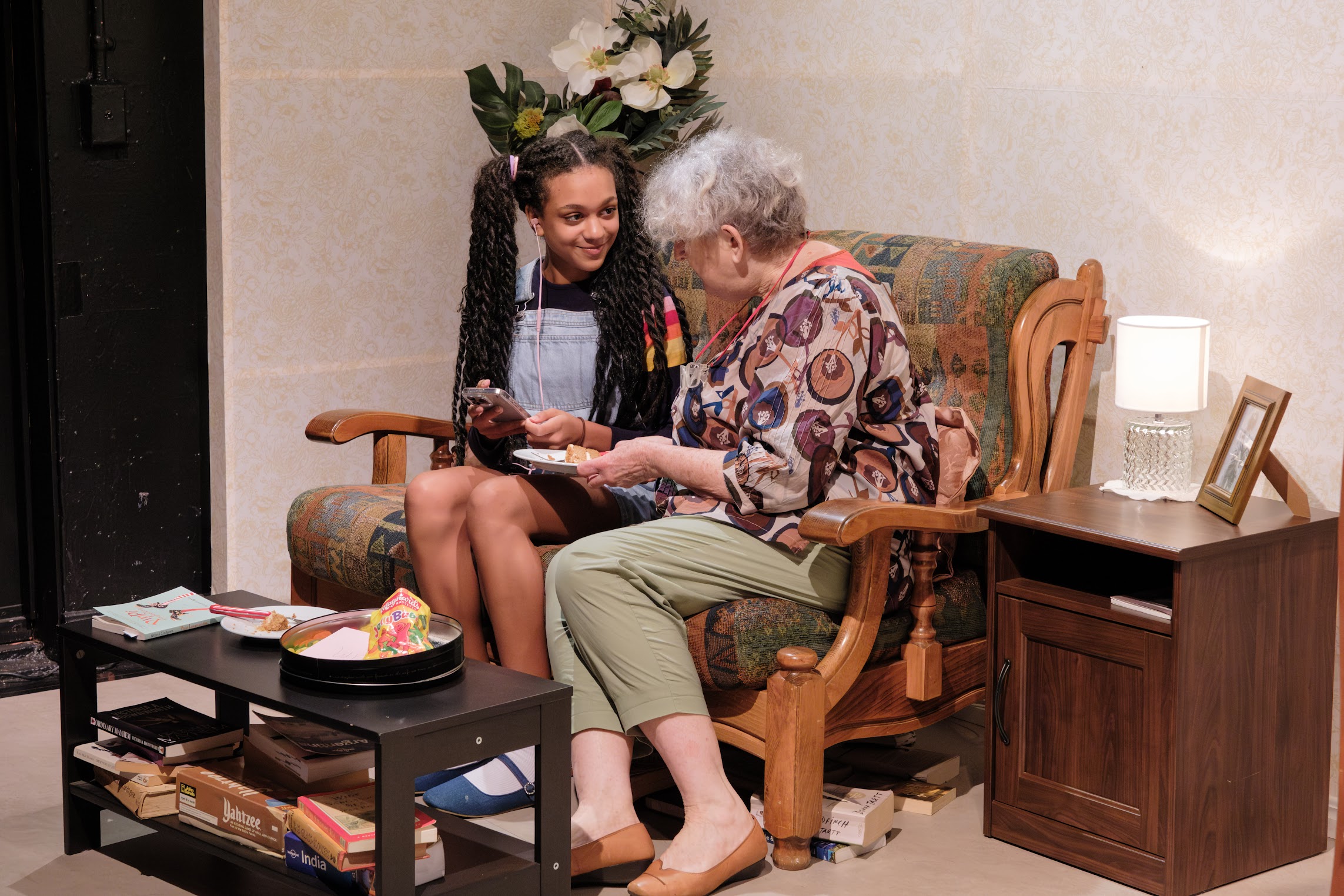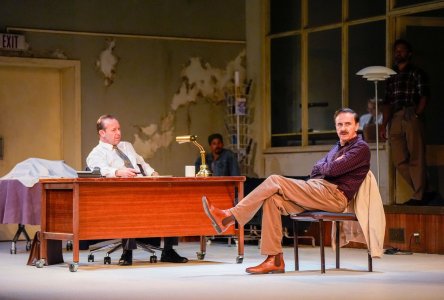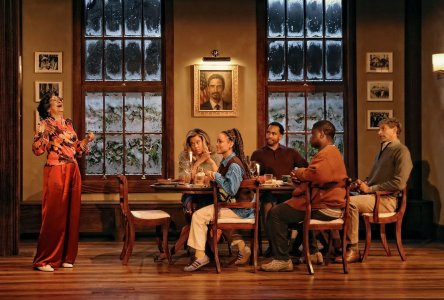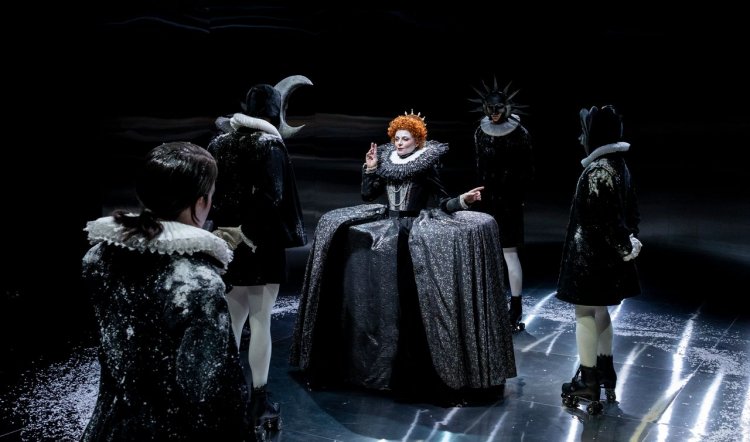
ORLANDO
ORLANDO, Belvoir St Theatre, 10-28 September 2025. Photography by Brett Boardman
Vita Sackville West’s son described Virginia Woolf's 1929 novel Orlando as “the longest and most charming love letter in literature”. Another way of looking at it, perhaps, would be Woolf’s own stated ambition that it should “exteriorise consciousness”. Any other which way, one of the greatest and most influential novels of the 20th century lends itself to adaptation and the knowing playfulness at its heart.
At that flirtatious heart is the idea of a hero/ine who, as a boy, first captivates Elizabeth I (Amber McMahon), then lives across the next 400 years as female and male and finally, as their own person. For the author, it explored, to fabled effect, Sackville-West’s coltish duality. Its portrayal of gender fluidity prefigured much of what would be considered avant-garde in the late 20th century, and even more so now, at a time when queerness, gender, and identity are Sydney obsessions.
Therefore, while recognising the spirit of the book, this 21st-century adaptation really needs to find an originality of its own and also the essence of theatre. When a story is built on suspension of disbelief – the bedrock of theatre – the staging has a monumental task in further lifting what is already stratospherically airborne.
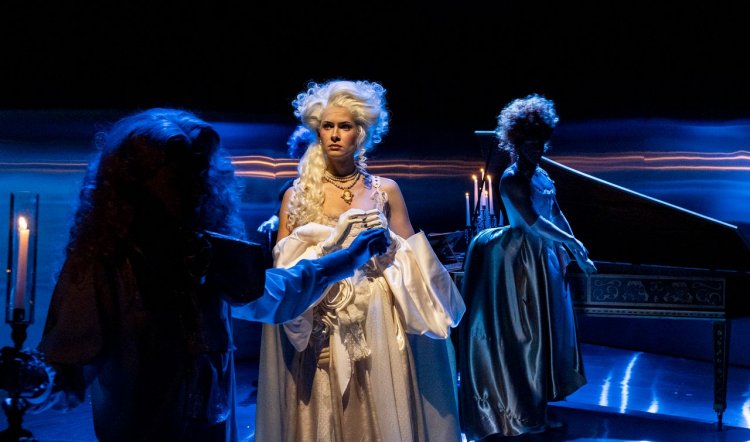
That requirement was identified by Sally Potter (creator of the 1992 film) as “…the underlying themes of impermanence, immortality of the soul, and the craziness of standard definitions of masculinity and femininity…” It’s a thrilling distillation of what’s at the heart of Orlando – no matter when it is revisited, how and by whom – and this, by director Carissa Licciardello, and Elsie Yager, is fascinating while never quite achieving either the lightness or profundity that would make it truly soar.
The opening scenes are promising. The frozen river Thames is an exhilarating spectacle, with set (David Fleischer) and lighting (Nick Schlieper) designers collaborating on an empty yet transformative frozen space that glimmers with watery depths, frosted with a circle of glittering ice dust. The source of the latter is revealed when a procession of actors in sheeny black “Elizabethan” garb glide across the luminous surface on (roller) skates. Listed in the program as “Roller Skating Consultant,” P Tucker Worley has consulted well: the actors’ movement during this sequence is at once spectacular and unobtrusive. They are at home on the “ice” – as they should be when history relates multiple winter freezes, with the “Great Frost” of 1683-84 solidly icing the river to a depth of 30 centimetres!
All too soon, Orlando morphs from the boy poet (a frolicsome Shannen Alyce Quan) and her chortle-provoking Rrrrrussian lover, Sasha (Emily Havea), to the Restoration and Janet Anderson. As a debutante at court in towering wig and provocative gown, she shockingly discovers what is required of a young lady, much as Sackville-West learned that being female in aristocratic England gave her no right to independent ambition.
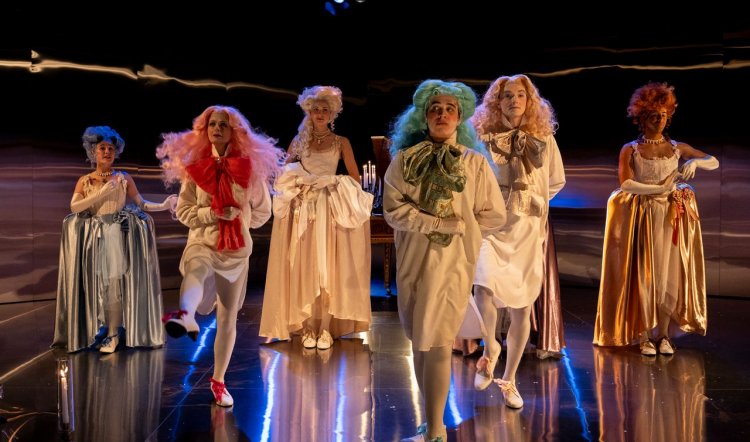
The central section, and the third handover of the character, to Victorian times and an androgynous Orlando (Zarif), is where the momentum and clarity go missing. Nyx Calder makes much of various turns, including an excellent snippy lawyer who’s suffering from ennui, and Anderson brightens the night in a handful of comical cameos, but there is something awry and out of focus. And it’s made more obvious by the final sequences – in contemporary London.
By means of light and sound (Kelly Ryall), the final Orlando (Nic Prior) is stranded and bewildered on a platform of the Circle line. It’s a droll choice as, when s/he asks, s/he’s told it doesn’t go anywhere, it’s a circle. S/he watches as passengers come and go in many quick-change combinations. It’s clever, amazingly well done, but goes on way too long and, with that dragging effect, it again negates what Tilda Swinton looked back in 2020 to describe as Orlando’s, “sheer boundarylessness and endless evolution.”
Orlando is intensely theatrical in its vivid yet subtle contradictions, and while they’re present on stage in a variety of realisations and thrilling visuals, the alchemy that is the lifeblood of theatre (come with me, you will believe) is missing. Although Alan John’s soundscape, Shannon Burns’ choreography, and Ella Butler’s costumes do much to counter the restrictions of gravity, even as the company does its damnedest to make it fly.

